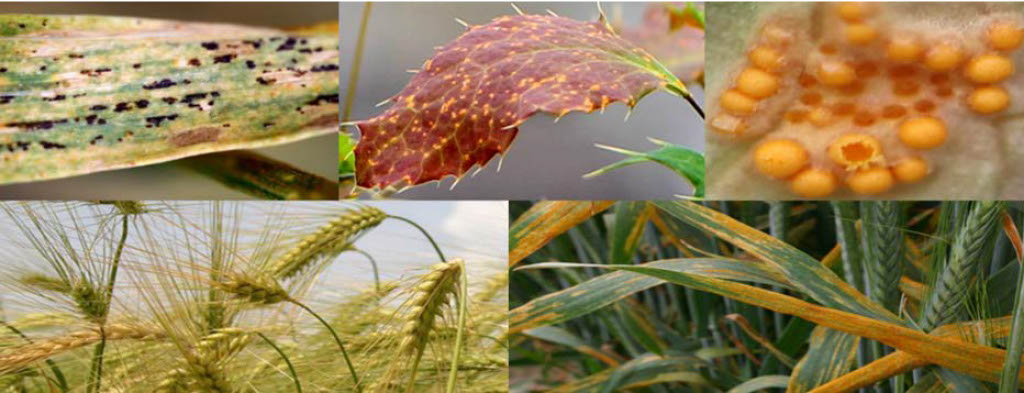PS Seminar Series - Sexual recombination on cereal rust fungi: epidemiological implications and potential applications for a sustainable cereal supply
Rust fungi are a major cause of cereal yield losses worldwide requiring frequent fungicide applications in case crop resistance is overcome by new pathogen variants.
Speakers
Event series
Content navigation
Description

Abstract: Rust fungi are a major cause of cereal yield losses worldwide requiring frequent fungicide applications in case crop resistance is overcome by new pathogen variants. Cereal rust fungi, such as Puccinia striiformis and P. graminis, require two unrelated host plant species to complete its life cycle. Asexual reproduction occurs on the primary cereal host, whereas sexual reproduction takes place on an alternate host of plant species belonging to Berberis and Mahonia genera. Sexual reproduction on the alternate host provides the advantage of generating novel genetic diversity and virulence combinations, which may pose a detrimental effect to the durability of cereal rust resistance. The detrimental role that the alternate host of cereal rust fungi may pose to cereal supply has regained attention due to the increase emergence of cereal rust fungi and the prevalence of Berberis species in cereal growing areas in Europe. In this seminar, I will provide insights into fundamental epidemiological and biological questions such as: 1. What is the potential role that the sexual life cycle may have in the epidemiology of cereal rust fungi in Europe? 2. Which Puccinia species may undergo sexual reproduction and infect major cereal crops? 3. What is the genetic diversity generated on the cereal host? and 4. What is the epidemiological link between indigenous Berberis species and cereal rust fungi? Additionally, I will provide some insights about how the complex life cycle of cereal rust fungi could be exploited to, e.g., answer fundamental questions regarding the genomic architecture governing host specialization and in the identification of avirulence genes involved in pathogen recognition by the cereal immune system.
Biography: Julian Rodriguez-Algaba is currently working as Assistant Professor at Aarhus University, Department of Agroecology and Plant Pathology in Denmark. His interest on plant pathology started during his BSc at the Technical School of Agricultural Engineering in Madrid, Spain. After that, he moved to the University of Copenhagen where he completed his MSc degree specializing in agricultural sciences with a specific focus on plant pathology. Later, he completed a Ph.D in plant pathology and genetics at Aarhus University, Denmark, focusing on the role of the sexual host of cereal rust fungi. Since then, his research mainly focuses on investigating fundamental aspects of the infection biology, population genetics, and the phenotypic and genetic characterization of cereal rust fungi and host responses aiming to develop improved disease management strategies. At ANU, he is a vising researcher at Schwessinger’s lab until June 2024.
Location
Eucalyptus Seminar Room,
Rm S205, Level 2,
RN Robertson Building (46)




